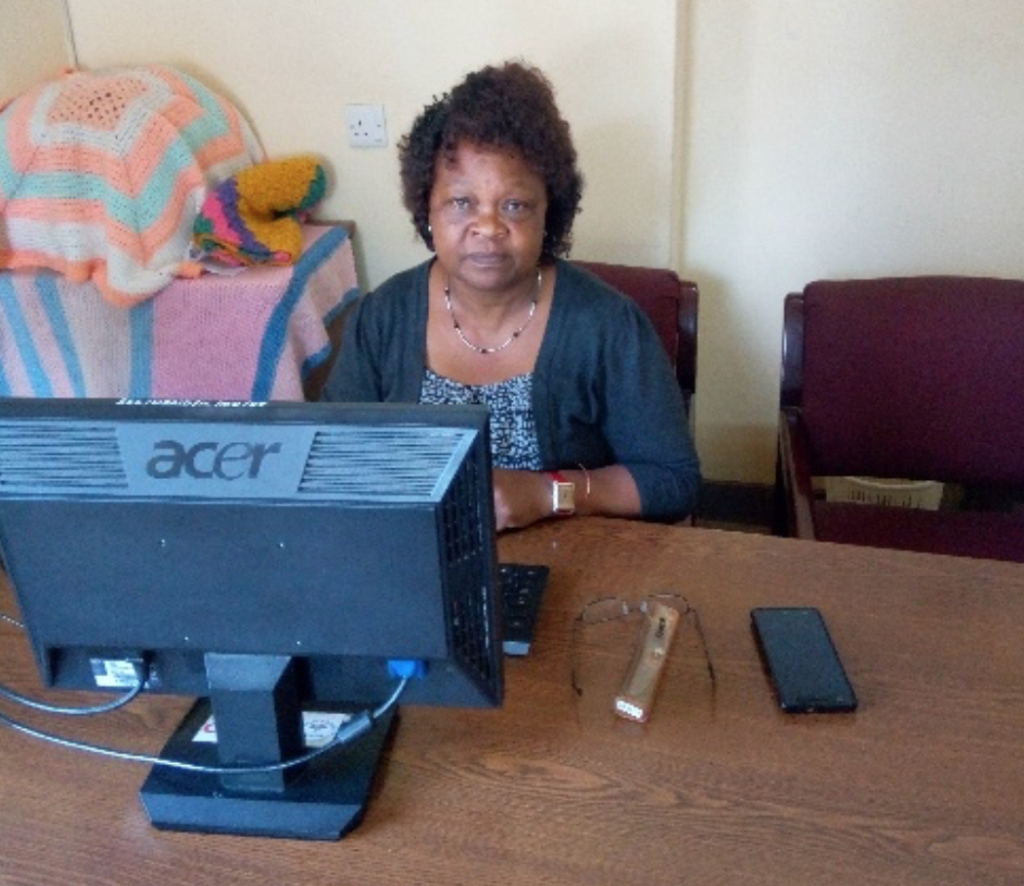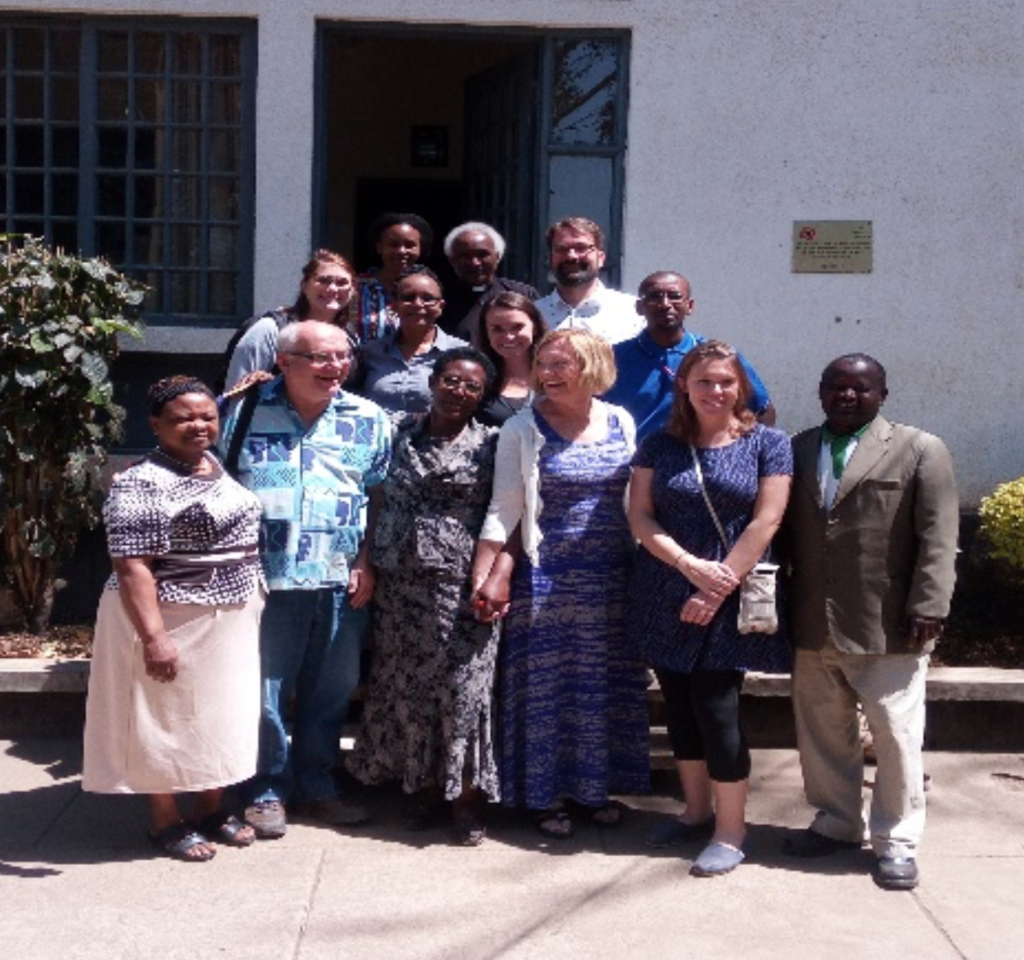Success Story: Tumaini John Kweka
Tumaini John Kweka, a specialist palliative care nurse from Tanzania, enrolled on the Bachelor of Science in Palliative Care Diploma in 2016. She is a full time worker at the Arusha Lutheran Medical Centre (ALMC) Hospice and Palliative Care programme. This is her story.

I am a student who completed my degree in Palliative Care last year 2017 and graduated in January this year.
As a student I gained more knowledge and skills from the PC training at IHPCA as compared to when I did my Diploma in Palliative Care year 2006/2007. I am working full time as a Palliative Care Nurse specialist in the Hospice and Palliative care programme, which is one of the departments within Arusha Lutheran Medical Centre (ALMC). The Hospital is under Evangelical Lutheran church in Tanzania (ELCT), located in the city. It also works in collaboration with another hospital under the same umbrella in the rural area known as Selian Lutheran Hospital (SLH). Our department works both in the urban and rural areas
The most important knowledge and skills gained during my studies with Hospice Africa are communication skills, breaking bad news, pain assessment and the management of pain, because each time I come across with a patient, I apply the knowledge into practice and the patient improves very well. This has given me an opportunity to actively and greatly contribute to the provision of improving palliative care services to patient with chronic illnesses and their families. Teaching is another important topic learned that made me improve my facilitating skills. Counselling children with Chronic illnesses and their families is a topic taught rarely in other training courses but it is very important to learn how to deal with children who are affected by chronic illnesses and those living with a parent who has a chronic disease.
First of all, the training has completely changed my inner feeling in taking care of all patients regardless of their sickness, the training improved my knowledge and skills which I acquired during my nursing school, it changed my attitude in communicating with patients with chronic diseases.
In addition, the knowledge and skills gained at Hospice Africa have enabled me to impart Palliative care services to other colleagues working in the Hospital and other health facilities in our region and Tanzania at large. The hospice and palliative care programme has a programme of training health professionals and non-professional a PC introductory course for four weeks, which the trainees are, rewarded a certificate. Being one of the facilitators and supervisor I supervise and follow up some of the faith based health facilities in the country especially those under the Evangelical Lutheran Church in Tanzania (ELCT). During these activities I use the monitoring and evaluation skills gained at the training which has improved my ability to practice the knowledge and skills attained at Hospice Africa. Continuous Medical Education (CME) is an activity that is facilitated in our hospital, with the knowledge and skills that I gained from Hospice Africa, I do facilitate other staff to enable them to practice palliative care in their departments whenever they come across with patients with chronic illnesses.
The other administrative knowledge and skills gained from Hospice Africa like leadership and management, within a palliative care setting, being a leader in our programme I have used the knowledge in day to day activities to understand the team and be an effective leader, because leadership is all about relationship between people and team work to attain the programs’ objectives. During the palliative care training I also gained knowledge and skills on proposal writing which has enabled me to write some proposal for funding and a few were successful, this includes the budgeting and financial planning which I also learned in the PC training. These are also very important skills that I gained at Hospice Africa to enable the smooth running of the programme.

ACHIEVEMENTS
Above all I have achieved the courage of facing the problems that arise from the patients with chronic illnesses with much confidence now that I am very well equipped. Many patients improved their lives and those who died, died in dignity.
I have trained many colleagues in palliative care and they are practicing PC in their respective areas.
CHALLENGES
The biggest challenge is that there are a few trained palliative care providers against many palliative care patients, as this affects the accessibility and affordability of palliative care services.
Most Health workers are ill equipped with knowledge and skills on palliative care, so providing palliative care becomes rather difficult because they are naive.
Other challenges are that most patients with cancer come at a very late stage of the disease, which makes it difficult to tackle their psycho social issues.
RECOMMENDATIONS REGARDING THE TRAINING
I recommend that the palliative care training trains more palliative care providers, for this to happen there should be more centres for imparting the PC knowledge and skills. At the end of the day quality palliative care will be provided at home level rather than anywhere else to lessen the burden of so many patients with chronic illnesses in hospitals.
The training should be affordable in order for every health professional and non professional to access.
